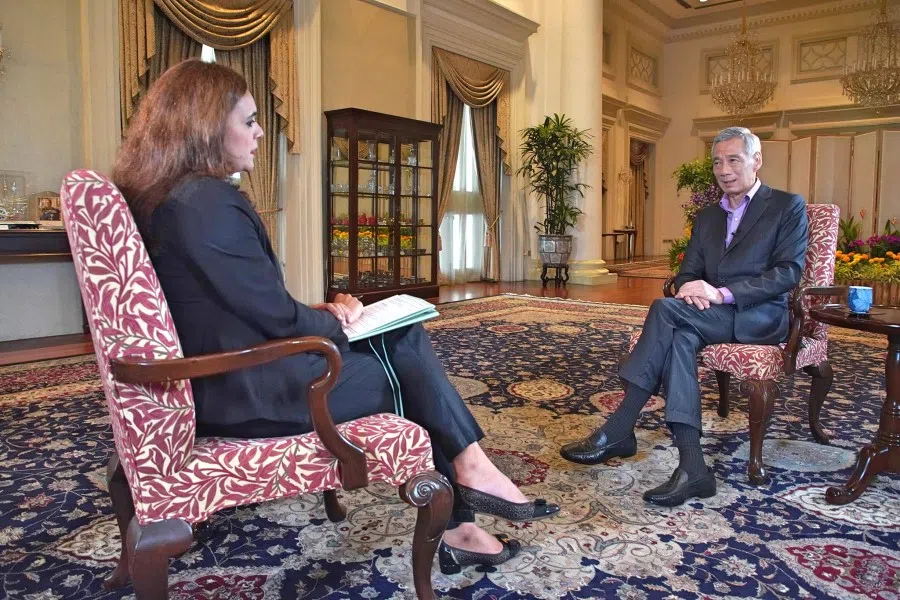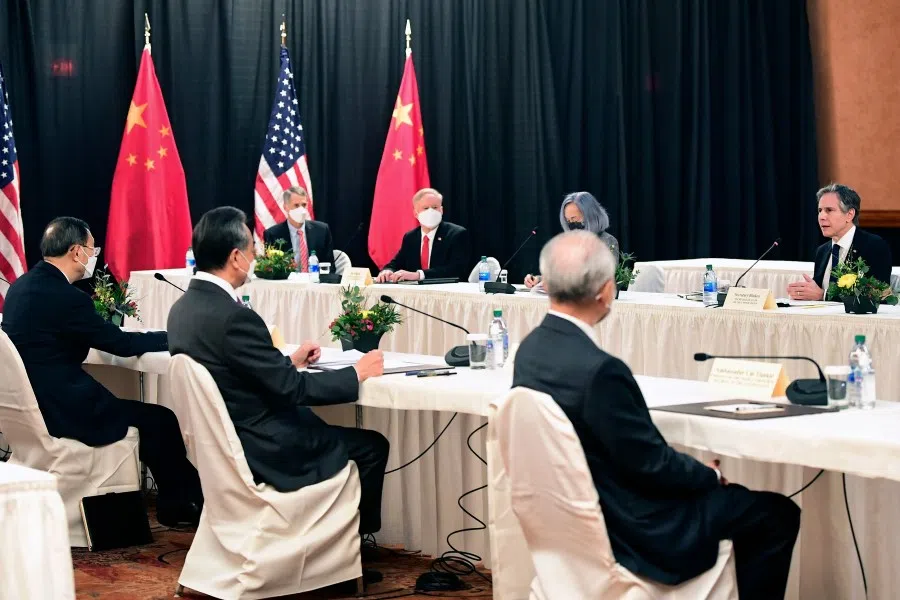Do small countries matter in China-US relations?
Japan-based academic Zhang Yun observes that even as big countries take the spotlight in international relations, they can learn a thing or two from the way small countries see the world and conduct their foreign policy.

Recently, all eyes were on the high-level strategic dialogue between China and the US in Alaska. Amid the almost live broadcast of unprecedented exchanges and conjectures about the future of China-US relations, it is time to go beyond China and the US and take a listen to third parties, especially small- and medium-sized countries.
This would help to expand our strategic thinking, make it more robust, and provide new insights for building new China-US and international relations.
Speaking on China-US relations during a BBC interview on 2 March, Singapore Prime Minister Lee Hsien Loong said that both China and the US "take the domestic calculations as paramount", and "the internal logic may impel you [them] to take a very hard line, and then you [they] may find yourself [themselves] at an impasse and clash. That can easily happen."
...the biggest difference in the way big and small countries frame their international strategies is that the former is guided by domestic considerations, and the latter by external considerations.

This interview is a strong indicator of the immense value there is in looking at international relations through small countries' eyes. Their views are often not given weight because people are always focused on the big countries. But now that China-US relations and international relations are facing a tough test, we need to appreciate the value of small-country calculations, for big and small countries have completely different considerations when defining their core values.
Small states prioritise the global big picture
First, the biggest difference in the way big and small countries frame their international strategies is that the former is guided by domestic considerations, and the latter by external considerations. Small countries are usually physically small with few resources; their economies are highly dependent on external factors for survival, and their inherent fragility coupled with relatively simple political structures makes them more sensitive to changes in the international system. Domestic factors do not play a significant role in their foreign policy choices.
Because they face direct strategic pressure from the international system, if domestic factors lead to policy errors, this would immediately threaten their survival. As small countries have a very small margin for error, they are very clear about defining their core interests. This is also why even amid the intensifying China-US competition, small countries are clearly stating their own interests in terms of not choosing sides.

Small states are clear and precise on their needs
Second, domestic politics in small countries are comparatively simple, which means that they can see and articulate more clearly the relations between big countries. Survival dictates that small countries do not allow their foreign policy to be guided by domestic political considerations, because any diplomatic failure means losing a chance of survival. They cannot make mistakes, much less fatal mistakes, so they are clearer about what they want and do not want. This is both a weakness and a strength; a strength because as long as they have a chance to speak out, they can clearly and directly express their views, and review the fundamentals of the international system.
In contrast, domestic politics in big countries are deep and far-reaching, where domestic forces compete and various ideas vie for attention. Not to say that there are no clear-minded people on either side, but sometimes it takes longer to reach a new consensus in domestic politics. At such times, small countries have the comparative advantage of being able to clearly express their ideas and gain greater support and agreement through multilateralism, and improve their space for survival by shaping the international environment.
Small states help cool global tension
Third, the structural characteristic of small countries in having strategic thinking guided by external considerations helps to provide valuable hints as to how to manage relations between big countries. In the face of big countries being heavily influenced by domestic considerations in their foreign policy decisions, small countries' timely reminder to the contrary will be of much value.
This is not to say that small countries should tell big countries what to do, but give them a chance to cool down and think in a tense and highly competitive situation. In his interview, Lee said that the US and China had to be careful in the way they framed the context for describing the other, that is, they would have to "think very carefully before deciding that the other one is an adversary".
...in order to effectively manage foreign relations, big countries should consciously train themselves to be more sensitive to the domestic situation of the other party and put themselves in their shoes.

Domestic politics will still be important
As the two largest countries in the world, there is no doubt that whatever happens within China and the US will have a great impact on their respective foreign policies. The exchange at the opening of the Alaska meeting happened in the context of badly deteriorating China-US relations, and both delegations faced domestic pressures. The fact is, for any country, diplomacy is an extension of domestic politics, and all the more so for big countries.
And because the domestic situation in big countries is more diverse, complex, and dynamic, in order to effectively manage foreign relations, big countries should consciously train themselves to be more sensitive to the domestic situation of the other party and put themselves in their shoes. This is not a moral act to benefit others but to achieve stable big country relations, which is a common interest.
For a long time, China has been more interested in the US than vice versa, and China's tracking of US domestic politics outstrips US understanding of China's domestic situation. But as bilateral relations change and evolve, the US has to gain a greater objective understanding of China's domestic happenings, otherwise, it will be difficult to reach a consensus.
The internal and external pressures on both sides in China-US relations will become increasingly obvious and significant, and managing China-US relations will require both sides to become more sensitive to each other for their mutual benefit. In other words, the future of China-US relations is not only a test of IQ but also of EQ. And on this point, it is worth it for big countries to listen seriously to small countries.


![[Big read] When the Arctic opens, what happens to Singapore?](https://cassette.sphdigital.com.sg/image/thinkchina/da65edebca34645c711c55e83e9877109b3c53847ebb1305573974651df1d13a)


![[Video] George Yeo: America’s deep pain — and why China won’t colonise](https://cassette.sphdigital.com.sg/image/thinkchina/15083e45d96c12390bdea6af2daf19fd9fcd875aa44a0f92796f34e3dad561cc)